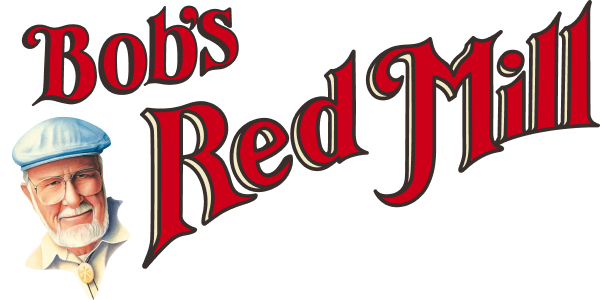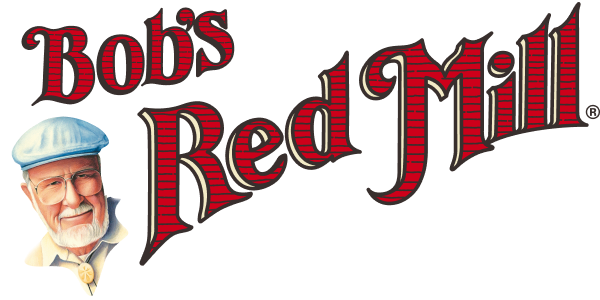


Adding seeds to your daily meals is a great way to boost your intake of essential nutrients. Most seeds are rich in protein, healthy fats, fiber and minerals, which increase your overall health and nutrition. If you're on the hunt for the most nutritious seed options, we recommend learning more about flax and hemp seeds. Two of the most popular varieties on shelves, flax and hemp seeds, have several uses. And while these seeds are used in similar ways, they do have their differences. Read on to learn more about flax seeds vs. hemp seeds and how you can begin incorporating both into your diet today.
If you're looking for ways to boost your health, you've probably come across a few sources that list seeds as an excellent option. Not only are seeds great tasting, but they're also great for you and can be added to everything from smoothies to baked goods. So, what makes seeds such a great addition to your diet? There are several reasons. The first is that the seeds are small. The small size of the seeds makes it easy to add them to nearly any recipe without changing the result. And while seeds may be tiny, they contain significant nutritional value. Adding just a handful of seeds to a recipe can improve the dish's nutritional profile tenfold. In addition to being small, most seeds have a mild, nutty flavor that works well and sweet, savory and spicy dishes. Their subtle flavor makes it easy to add them to nearly any recipe so that you can experience their unique benefits. Lastly, seeds are sold in many different forms. For example, some seeds are sold whole, while others are sold ground, crushed, or as butter. The various forms of seeds mean you can use them to create all types of dishes, from flours to sauces and seasonings.
Now that you know what great addition seeds make to a meal, let's talk about flax seeds specifically. Flax seeds are the seed of the flax plant, a plant that has a history of being used as a textile and food. When used to make fabric, the product of flax seed is commonly known as linen. Linseed oil, a vegetable oil, is also derived from this plant. However, the most common way to enjoy flax seeds is the seed itself. Flax seeds are small and smooth and can range from brown to yellow in color. When harvested, flax seeds are packaged and incorporated into all dishes, from energy bars to sweet baked crumbles. Though flax seed has recently grown in popularity, it has been cultivated for thousands of years. In fact, flax seed is one of the oldest known crops, which first originated in the Mediterranean and quickly made its way across the globe to India. This seed has been around for so long that the ancient Egyptians used to make it into cloth to wrap mummies in.
Aside from boosting the taste and texture of your recipe, flax seeds have several benefits. Here are a few of the reasons we love enjoying flax seeds regularly.
Healthy Fats
flax seeds are loaded with omega-3 essential fatty acids, also known as "good" fats. Omega-3s benefit your health in several ways, including better heart health and reduced inflammation. A small serving of flax seeds will add an impressive amount of Omega-3s to your meal.
Lignans
Lignans are one nutrient that is not talked about enough. A type of phytoestrogen (a group of compounds linked to several health benefits), lignans have antioxidant properties and may protect your cells from damage. flax seeds have over 70 times more lignans than other plant foods and are an excellent way to boost your intake of this nutrient.
Fiber
Fiber is essential to good gut health, and flax seeds are full of it. The soluble fiber found in flax seeds absorbs water and slows down digestion. Not only can this help stabilize blood sugar levels, but it will also keep you feeling fuller for more extended periods of time and promote better digestive health.
Now that we've covered flax seeds, it's time to discuss hemp seeds. Hemp seeds are much what they sound like, the seeds of the hemp plant. The hemp plant can be used in many ways, and while it's often associated with cannabis, hemp seed and hemp protein powder don't contain THC or CBD. While some hemp seeds can be found in the whole form, most are sold pre-hulled and are commonly labeled as hemp hearts. Hemp hearts are the soft inner part of the hemp seed, which remains once the shell has been removed. While whole hemp seeds' texture is crunchy, hemp hearts have a much smoother texture that's often described as slightly squishy. Both hemp seeds and hearts are loaded with nutrients, making them excellent nutritional supplements for people looking to make healthy additions to their diet.
Like flax seeds, hemp seeds offer many benefits. From providing a fantastic source of plant based protein to healthy fats, here are a few hemp seed benefits that stand out.
Complete Protein
Hemp seeds are loaded with protein. And, because they contain all nine essential amino acids, they are considered a complete protein source. Few plant based proteins are considered complete sources, making hemp seeds an excellent option for vegetarians and vegans looking to supplement their nutrient intake. Moreover, hemp seeds are especially rich in the amino acid arginine, which has been shown to affect heart health positively.
Fiber
Hemp seeds are a good source of fiber. That said, much of hemp seeds' fiber lies in its outer shell, typically removed before consumption. Still, even without the shells, hemp seeds offer beneficial amounts of fiber, with Bob's Red Mill Hulled Hemp Seed Hearts providing 3 grams or 11% of the daily recommended amount of fiber per serving. Consuming adequate fiber daily has several benefits, including better digestive health. When eaten, fiber slows down digestion, adds bulk to stools, and promotes gut health by supplying good bacteria with food.
Healthy Fats
Like most seeds, hemp seeds are full of healthy fatsone of which is omega-3 fatty acids. Essential fatty acids like omega-3s are vital for long term health, and regular eating hemp seeds can help promote a healthy balance of omega-6s and omega-3s. Omega-3s have several roles in the body, including regulating blood clotting, reducing inflammation and producing crucial hormones.
While flax seeds and hemp seed hearts share similar nutritional benefits, there are times when one of these seeds is a better option than the other. Here's a quick nutritional comparison to help you decide which seed is best for your diet.
Carbohydrates
Healthy carbohydrates are good for you and play an essential role in energy creation. That said, individuals watching their carbohydrate intake or following a low carb diet may seek out low carb food options. When compared side by side, hemp hearts contain significantly lower amounts of carbohydrates than flax seeds and are the preferred choice for people looking for a low carb nutrient source.
Fiber
We mentioned that fiber is excellent for digestive health, making it one nutrient you don't want to lack. If you're worried you are not meeting your daily fiber requirement, hemp seed hearts and flax seeds are an excellent choice. Because hemp seed hearts lose some of their fiber during processing, flax seed typically contains higher amounts. For example, when comparing Bob's Red Mill Hulled Hemp Seeds Hearts with Golden Flax Seed, one serving of flax seed provides 8 grams of fiber, whereas hemp seed hearts offer 3 grams.
Protein
What hemp seeds lack in fiber, they make up for in protein. Hemp seeds are an excellent source of plant based protein and offer 10 grams per serving. The high protein content of these seeds makes them a fantastic choice for plant based eaters. While flax seeds contain less protein, they still offer 6 grams per serving. So if you're worried you are not getting enough protein from your diet, try adding a spoonful of flaxseed or hemp seed hearts to a delicious smoothie recipe like this Strawberry Flax Smoothie. Quick, easy and refreshing is the perfect way to add more protein to your diet. Now that you know how flax seeds and hemp seeds compare, it's time to decide which will work best in your weekly meals. Both are excellent sources of nutrients of plant based protein and can be added to smoothies, soups, sauce and stir fry to boost the nutritional value and flavor. From the Bob's Red Mill family to yours, have a healthy and happy day! Do you have a preference for flax seeds or hemp seed hearts? We'd love to know more about why you prefer one over the other. Share your favorite superseded recipes with us in the comments below.